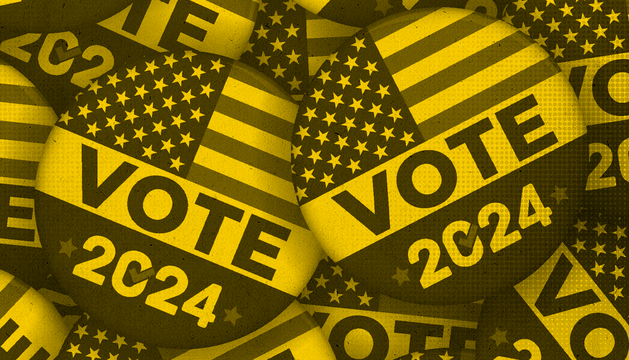Georgia: Limits on Voter Eligibility Challenges
This resource details state and federal laws that guard voters against unfounded challenges to their eligibility.
Part of
Written and published in partnership with All Voting is Local
Georgia, like most states, allows private individuals to challenge another person’s eligibility to vote. This resource details state and federal laws that govern this process and protect challenged voters. Georgia’s protections include requirements that all challenges be in writing and that the board of registrars find probable cause before they act on a challenge.
All challenges must be in writing, must state the specific grounds for the challenge, and must be filed directly with the board of registrars.
- Only a registered voter from the same county or municipality can challenge another voter’s eligibility before or on Election Day. 1
- A person challenging another voter must submit the challenge in writing and must “specify distinctly the grounds for the challenge.”2
- Challenges must be filed with the county’s board of registrars, even if the challenge is on Election Day. 3Poll managers and poll workers cannot accept challenges. 4
- Effective July 1, 2024, all challenges filed within 45 days of an election cannot be heard until after certification of the election is completed. 5
The board of registrars can only accept challenges to absentee ballots until 5 p.m. the day before absentee ballot scanning and tabulation begins. 6
Georgia law requires an immediate probable cause determination before any action can be taken on a challenge to an individual’s right to vote.- When a challenge is filed, the board of registrars must make an immediate determination as to whether the challenger has shown probable cause to proceed on the challenge. 7Poll managers and poll workers cannot make the probable cause determination. 8
- Under Georgia law, probable cause requires more than “rumor, suspicion, speculation or conjecture.”9
- If the challenger cannot show probable cause for the challenge, the board of registrars must dismiss the challenge. 10
- If the board of registrars determines there is probable cause for the challenge, the voter must be given an opportunity to respond. 11If the board denies the challenge, the voter can cast a regular ballot. Even if the board grants the challenge, federal law requires that the voter be allowed to cast a provisional ballot if they sign an affirmation of their eligibility to vote. 12
- If the board of registrars determines there is probable cause for the challenge, but there is insufficient time to conduct or complete a hearing, the voter must be allowed to vote a challenged ballot. In the case of a voter who has cast an absentee ballot, the absentee ballot will be treated as a challenged ballot. 13
If the board of registrars determines there is probable cause for the challenge and the challenged voter does not go to vote or cast an absentee ballot, and the grounds for the challenge are that the voter is not qualified to vote, then the registrar must send the voter notice and set a hearing date for the voter’s potential removal from the rolls. 14
A voter always has a right to notice and a hearing before a finding of ineligibility.- When a challenge is filed, the board of registrars must first assess whether there is even “probable cause” to proceed on the challenge.
- If the board finds probable cause to move forward on a challenge, it must send a notice by first class mail to the challenged voter within 10 days of the challenge being filed and set a hearing within 3–10 days of the notice being sent. 15
- The challenger has the burden of proving that the challenged voter is not qualified to vote. 16
If the board finds a voter ineligible, it must notify the voter of its decision and of their right to appeal the decision to the county superior court. 17
Almost no challenge should result in the immediate removal of the voter.
In addition to Georgia’s new prohibition on the consideration of challenges within 45 days of an election,18the National Voter Registration Act further limits when and how voters can be removed from the rolls. Under the act, states and counties are permitted to remove a voter in just five circumstances: if the voter affirms the change; if state law requires removal for a criminal conviction or mental incapacity; for the death of the voter; if the voter confirms a change of residence in writing; and based on other evidence of a change of residence, but only after the state sends a notice and the voter both fails to respond and fails to vote in the next two federal general elections. 19These restrictions apply regardless of whether boards of registrars are conducting their own list maintenance or responding to challenges.
The act also prohibits the systematic removal of voters within 90 days of a federal election. 20According to guidance from the U.S Department of Justice, “This 90-day deadline applies to State list maintenance verification activities such as general mailings and door-to-door canvasses. This deadline also applies to list maintenance programs based on third-party challenges derived from any large, computerized data-matching process.”21
• • •
Voters in Georgia have the right to vote free from intimidation under federal and state law. Baseless challenges to a voter’s eligibility can harass and intimidate the voter being challenged, as well as other voters waiting to vote at the polls. More information on the federal and state laws that protect Georgia voters from intimidation can be found here.
Endnotes
-
1
Ga. Code §§ 21–2–229(a), 21–2–230(a).
-
2
Id.
-
3
Ga. Code §§ 21–2–229(b), 21–2–230(b); see also Georgia State Elections Director, “Official Election Bulletin,” October 13, 2022, https://drive.google.com/file/d/1fLnPc9U5RnRMOxTPbV5RPRjoE6v5VgE_/view.
-
4
GA State Elections Director, “Official Election Bulletin,” October 13, 2022.
-
5
Ga. Code §§ 21–2–230(b)(1), as amended by S.B. 189, 157th Gen. Assemb., 2nd Reg. Sess. (Ga. 2024).
-
6
Ga. Code §§ 21–2–230(a).
-
7
Ga. Code §§ 21–2–230(b).
-
8
GA State Elections Director, “Official Election Bulletin,” October 13, 2022.
-
9
Zimmerman v. State, 131 Ga. App. 739, 794 (1974).
-
10
Ga. Code §§ 21–2–230(b).
-
11
Id.
-
12
52 U.S.C. § 21082(a).
-
13
Ga. Code §§ 21–2–230(e), 21–2–230 (h), 21–2–386(e).
-
14
Ga. Code § 21–2–230(f).
-
15
Ga. Code § 21–2–229(b).
-
16
Ga. Code § 21–2–229(c).
-
17
Ga. Code §§ 21–2–229(d), (e).
-
18
Ga. Code §§ 21–2–230(b)(1), as amended by S.B. 189, 157th Gen. Assemb., 2nd Reg. Sess. (Ga. 2024).
-
19
52 U.S.C. § 20507(a)(3), (d).
-
20
52 U.S.C. § 20507(c)(2)(a).
-
21
U.S. Department of Justice, Voter Registration List Maintenance: Guidance under Section 8 of the National Voter Registration Act, 52 U.S.C. § 20507, 4, September 2024, https://www.justice.gov/crt/media/1366561/dl.
More from the Limits on Voter Eligibility Challenges series
-
Michigan: Limits on Voter Eligibility Challenges
This resource details state and federal laws that guard voters against unfounded challenges to their eligibility. -
Nevada: Limits on Voter Eligibility Challenges
This resource details state and federal laws that guard voters against unfounded challenges to their eligibility. -
North Carolina: Limits on Voter Eligibility Challenges
This resource details state and federal laws that guard voters against unfounded challenges to their eligibility.

